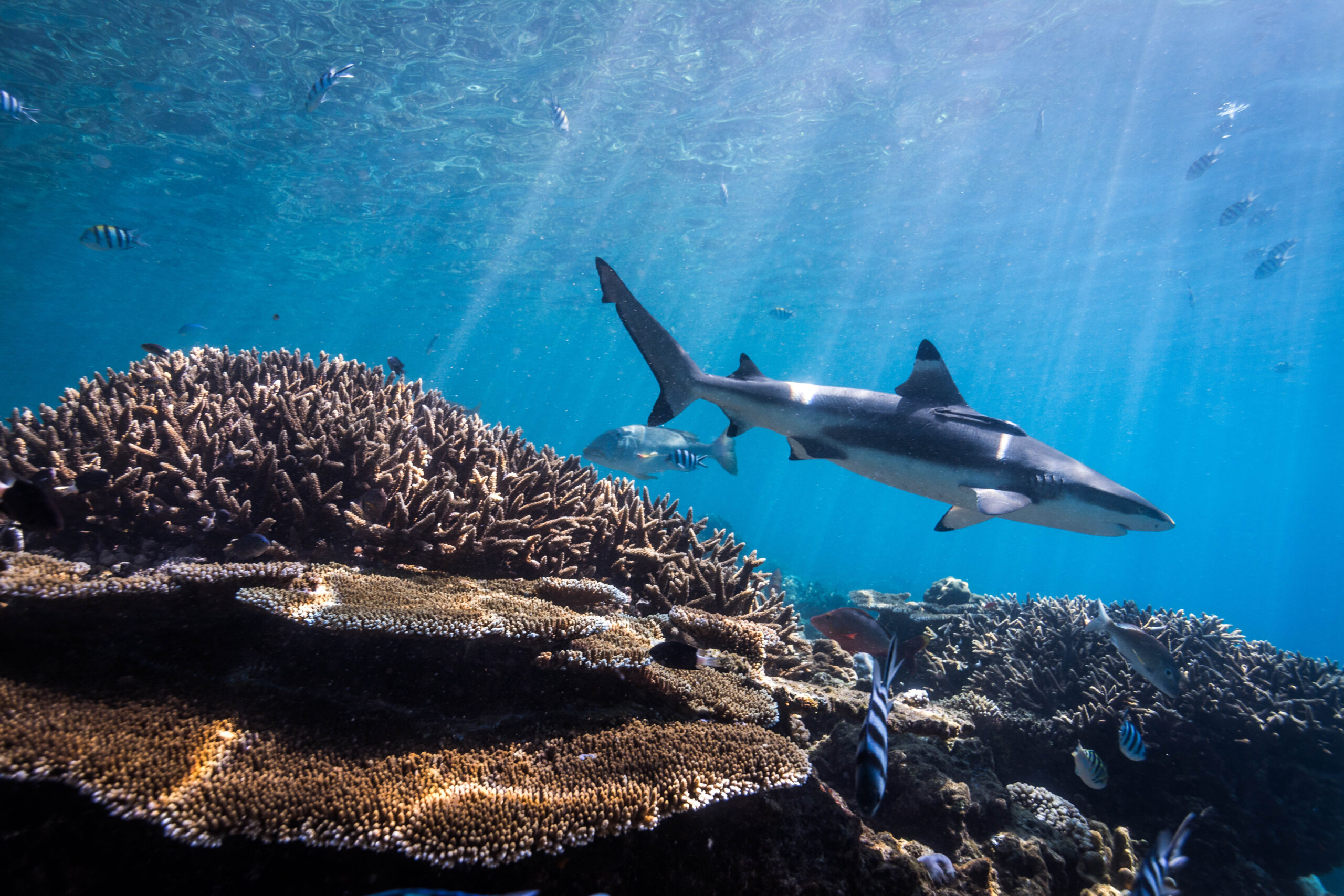by Michelle Graulty | Dec 6, 2024
The authors highlight the difference between “ecological restoration” (hands-on recovery efforts) and “restoration ecology” (the science behind these efforts). They recommend integrating restoration into a broader resilience-based management strategy for coral reefs, with clear goals and evaluations to avoid misinterpretation of success and viability.
by Michelle Graulty | Dec 6, 2024
This low-tech, high-impact method can be integrated into local reef management strategies and can be done using volunteer divers with minimal training.
by Michelle Graulty | Aug 15, 2024
Marine protected areas (MPAs) are vital tools for safeguarding ecological systems and are increasingly being established worldwide. However, MPAs can significantly impact human well-being, particularly for communities dependent on fishing and coastal access. Often,...
by Michelle Graulty | Aug 2, 2024
Coral reefs are increasingly threatened by various disturbances, making it essential for managers to identify which reefs are more resilient and capable of retaining their biodiversity and ecosystem function. Resilience potential assessments evaluate coral reefs to...
by Michelle Graulty | May 31, 2024
Recent studies and the Global Biodiversity Framework underscore the vital role of management initiatives led by Indigenous Peoples (IP) and Local Communities (LC) in achieving conservation goals, addressing climate change, preserving biodiversity, and fostering a more...
by Michelle Graulty | May 22, 2024
With marine heatwaves increasing in frequency and intensity, it is necessary to understand coral recovery post-disturbance. This study examined coral cover recovery rates across 1,921 sites in the Pacific, Indian, and Atlantic oceans from 1977 to 2020, focusing on...
by Michelle Graulty | May 22, 2024
High-resolution spatial data on coral reef distribution and composition can help managers and researchers plan marine conservation efforts, better predict climate change impacts, and enhance models for understanding reef health. The Allen Coral Atlas has developed...
by Michelle Graulty | Apr 16, 2024
Climate change poses a significant threat to coral reefs worldwide, necessitating efforts to identify and promote local conditions that enhance resilience in the short term. While it is known that increased anthropogenic nutrients (from agriculture and waste) diminish...
by Michelle Graulty | Apr 16, 2024
Climate change poses challenges for designing and managing marine protected areas (MPAs). The review examined 172 management plans covering 555 MPAs across 52 countries to see how well existing recommendations for creating climate-resilient MPAs are being put into...
by Michelle Graulty | Mar 29, 2024
Several challenges impede marine conservation efforts in promoting social equity, including historical Western-focused conservation models with a top-down approach and insufficient consideration of Indigenous and local needs. Over recent decades, progress has been...
by Michelle Graulty | Mar 4, 2024
Area-based management for conserving biodiversity is becoming more common, especially to meet global targets like the 30 X 30 initiative. While Marine Protected Areas (MPAs) are often set up to protect biodiversity, other types of management established for different purposes may also help achieve conservation goals, such as the case of other effective area-based conservation measures (OECMs).
by Michelle Graulty | Feb 12, 2024
Local human activities and climate-driven marine heatwaves are significantly altering coral reef ecosystems. Managers aiming to increase reef resilience often face challenges in effectively integrating ridge-to-reef initiatives within their plans for coral reef...
by Michelle Graulty | Jan 22, 2024
Historically, natural resource management has focused on preserving or restoring ecosystems to previous baseline conditions. However, intensifying anthropogenic impacts combined with climate change means that it is often no longer possible to restore ecosystems to a...
by Michelle Graulty | Dec 26, 2023
Marine heatwave stress has led to widespread coral bleaching and mortality events. The ability of reef-building corals to withstand this heat stress will be an important trait under natural selection in the coming decades. Selection and propagation of heat-tolerant...
by Michelle Graulty | Dec 17, 2023
To mitigate the impacts of pollutants on coral reef ecosystems, managers require data-driven water quality thresholds. This study conducted a comprehensive review and meta-analysis, assessing the effects of various pollutants, including metals, pesticides (herbicides,...
by Michelle Graulty | Dec 7, 2023
Coral reef ecosystems and reef fish populations worldwide are diminishing due to a combination of factors, including overfishing, climate change, deteriorating water quality, habitat destruction, and decreasing reef complexity. When weighing various management...
by Michelle Graulty | Sep 13, 2023
Human activities in coastal regions, such as mining, farming, urbanization, and waste disposal, deteriorate water quality in nearby watersheds, negatively impacting downstream coastal ecosystems like coral reefs. This compromised water quality in turn affects human...
by Michelle Graulty | Sep 8, 2023
This study revealed that an acute deoxygenation event on a Caribbean coral reef rapidly altered the benthic community composition and microbial assemblage present. The deoxygenation event led to significant consequences, including coral bleaching, tissue loss, and...
by Michelle Graulty | Jul 28, 2023
This study assessed the coral community composition, bleaching, and mortality across a gradient of anthropogenic disturbance levels before, during, and after a prolonged heatwave during the 2015-2016 El Niño event on Kiritimati’s coral reefs. The year-long heatwave...
by Michelle Graulty | Jun 20, 2023
Coral reef restoration projects are becoming a popular corporate environmental responsibility activity at hotel resorts. This paper presents a simple monitoring method that hotel staff can conduct without scientific training to measure the success or failure of their...


